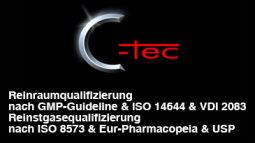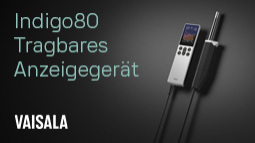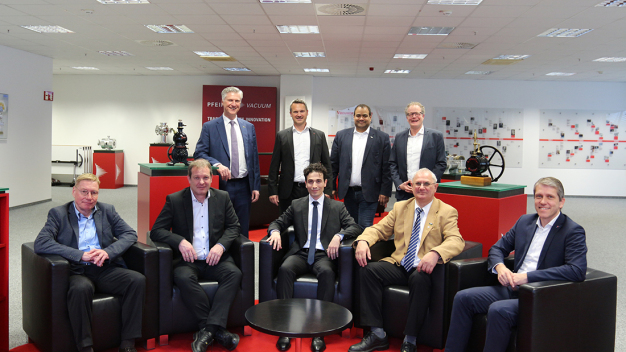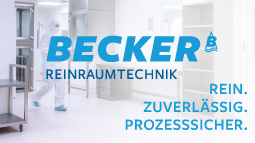- Award
Particle accelerator on a microchip
Pfeiffer Vacuum welcomes Röntgen Prize winner Dr. Roy Shiloh
– Nanophotonic electron acceleration
– Pfeiffer Vacuum and the Ludwig Schunk Foundation have been promoting young scientists for many years
The prestigious Röntgen Prize was awarded by the Justus Liebig University Giessen (JLU) to physicist Dr. Roy Shiloh from the Friedrich-Alexander University Erlangen-Nuremberg (FAU) and the Hebrew University of Jerusalem. The prize money, which is worth € 15,000, is donated by Pfeiffer Vacuum and the Ludwig Schunk Foundation. The JLU has awarded this prize since 1960, in memory of Nobel Prize winner Wilhelm Conrad Röntgen, who was a professor in Giessen from 1879 to 1888.
Dr. Shiloh is receiving the award for his outstanding studies around the subject of “Nanophotonic electron acceleration”. X-ray sources based on the principle of electron acceleration in vacuum have been used for medical and other applications for more than 125 years now. Building on this principle, Dr. Shiloh was able to demonstrate that electrons in nanophotonic structures can be actively guided with the help of optical fields. Using a new method, he has succeeded in achieving the world’s first particle accelerator on a microchip. As a sponsor company, Pfeiffer Vacuum received a visit from Dr. Shiloh the day before the award ceremony to report on his findings. In congratulating the award winner, Pfeiffer Vacuum CEO Daniel Sälzer underlined that: “Pfeiffer Vacuum attaches great importance to promoting cutting-edge research and to fostering the next generation of scientists. We are extremely pleased that, together with the Ludwig Schunk Foundation, we have been awarding the Röntgen Prize for some decades now”. The research work conducted by the award winner requires great technical expertise, sophisticated simulations and highly precise nanofabrication. In the course of his research work, Dr. Shiloh developed a new method of electron acceleration which could be of immense significance for future practical implementation and commercial use. “This method could permit innovative and extremely compact x-ray devices for clinical purposes to be built in the future”, emphasized Prof. Dr. Markus Thoma (Department of Physics) for the evaluation team at the JLU.
Dr. Shiloh studied Physics and Electrical Engineering at Tel Aviv University and graduated from there in 2018. At the FAU, he spent four years researching as a postdoctorate fellow in the group of Prof. Dr. Peter Hommelhof and is now an assistant professor at Jerusalem University.
Pfeiffer Vacuum GmbH
35614 Asslar
Germany









